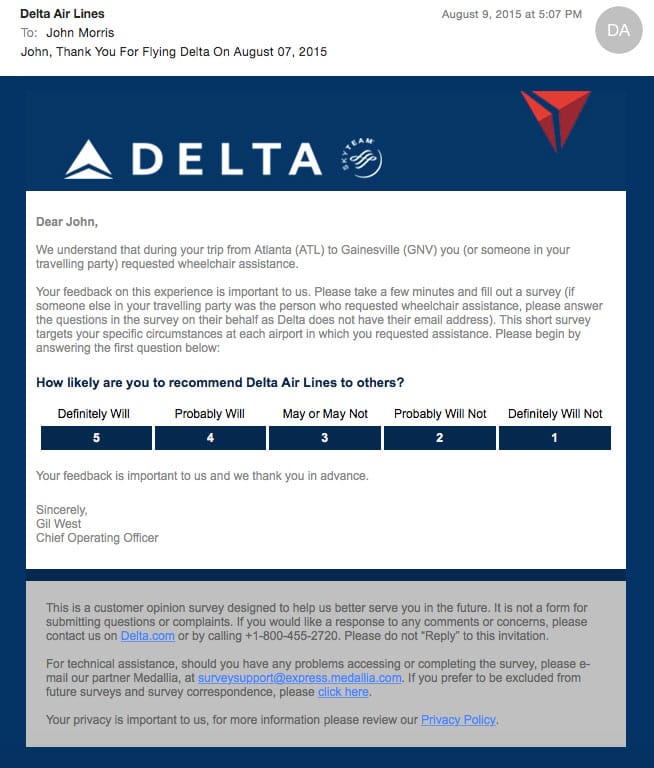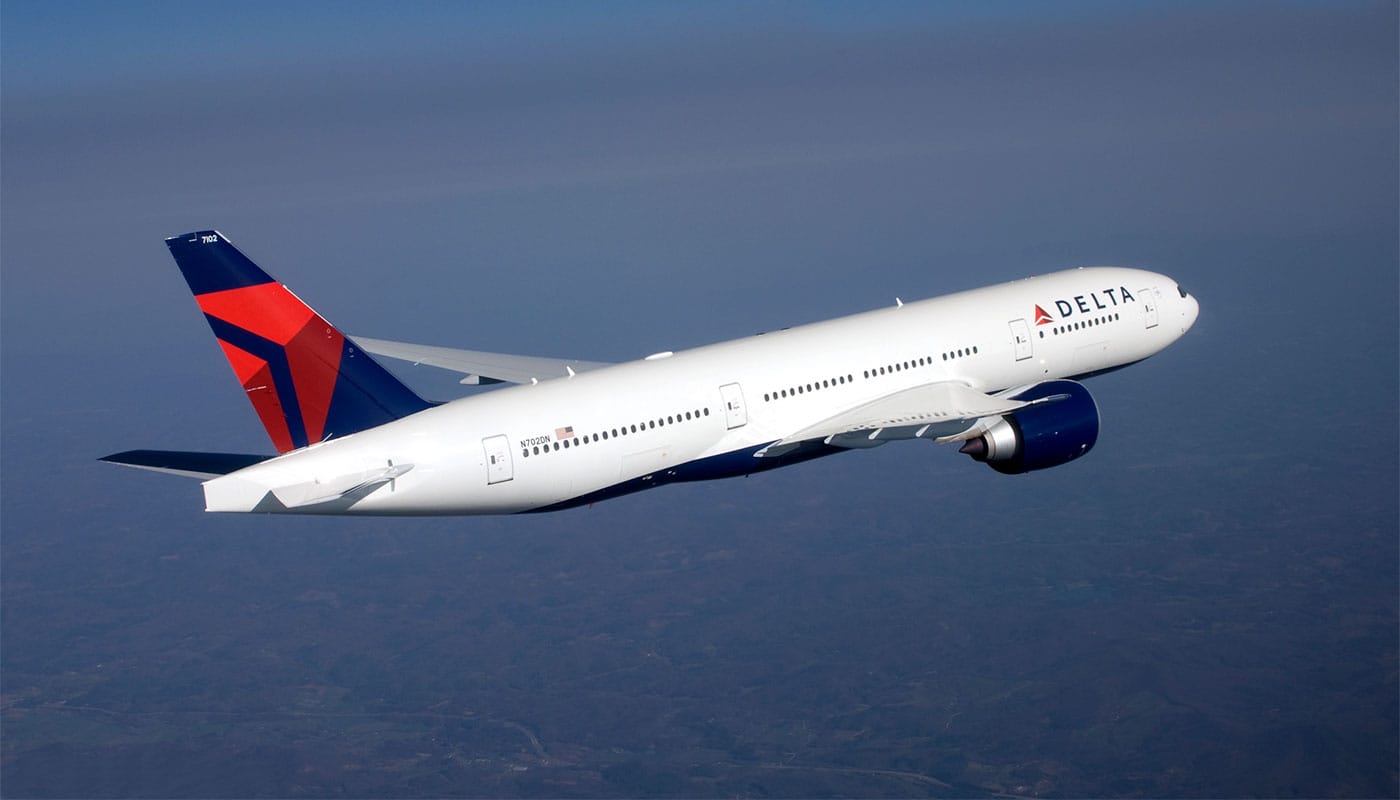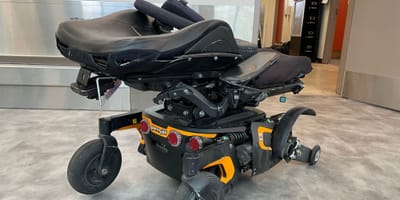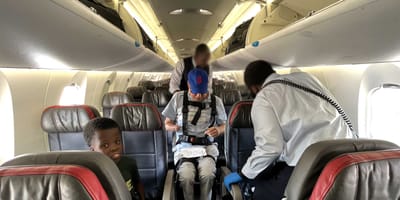I was recently invited to attend the annual meeting of the Delta Air Lines Advisory Board on Disability. The meeting took place in Orlando, Florida from August 5-7, 2015. I do not sit on this board, but was extended the invitation due to my status as one of Delta’s most frequent travelers with a physical disability. Since January 2014, I have flown 236,070 miles across 204 flight segments on Delta and its partner carriers – all with my power wheelchair.
Through those travels, I have been afforded a unique, global perspective on Delta’s services for the wheelchair traveler. I have flown Delta-operated flights to and/or from 32 airports in the United States, Asia and Europe. I have continued on to other destinations using partner airlines, including Air France, China Eastern, China Southern, Kenya Airways, KLM and Virgin Atlantic.
In this article, I look to share my thoughts on the services offered to travelers with disabilities at Delta, takeaways from the board meeting, and a brief history of my experiences with the airline. I will also share a few tips that I hope will make air travel more pleasant for wheelchair users.
Set realistic expectations for traveling with a disability.
Things happen. Mistakes are made. All travelers can be inconvenienced by many types of service failures throughout the journey. There are a lot of moving parts in air travel. It’s best to shrug off the minor inconveniences.
On the way to the Advisory Board meeting, my wheelchair was damaged while being removed from the cargo hold in Atlanta. The damage was minor, and Delta has arranged for it to be fixed at my convenience. It was an accident, a mistake. Baggage handlers on the ramp did not intentionally decide to damage my wheelchair. I shrugged it off. This also happened on a trip to Indianapolis last month. Delta representatives at the Indy airport addressed it promptly and the repairs were made upon my return home.
At the board meeting in Orlando, Delta reported that in 2014, 3.34 of every 100 wheelchairs they carried were damaged. This is an improvement from the 2010 figure of 3.71 per 100.
For the wheelchair traveler, the most frustrating failures occur inside the airport. Passengers might wish to overlook the first occasion of their needs not being met promptly or efficiently, but subsequent shortcomings should be reported to the airline.
Wheelchair travel with Delta: My story (in brief)
On January 5, 2014, I took my first flight on Delta as a triple amputee and power wheelchair user. On at least one-third of the flights that have followed, I experienced a violation (or violations) of my civil and air travel rights, as defined by the Air Carrier Access Act.
I quickly realized that repeated violations were a big deal, as they demonstrated a pattern that affected not only me, but other travelers with disabilities. In 2014, 1.2 million of us flew on Delta. E-mails sent to the airline concerning my experiences were answered with a canned response and some compensatory frequent flyer miles. From my perspective, nothing was being done to address the underlying issues. My travel plans were often disrupted by significant delays in the return of my wheelchair, staff not present to assist with boarding/deplaning or damage to my wheelchair.
The quality of my travel experience on Delta has depended a great deal on the airports I fly to, from or connect through. Atlanta and Seattle-Tacoma, major hubs for Delta, are two of the best airports with regard to ACAA compliance. Baltimore, Boston, Los Angeles and St. Louis are among the worst. I stopped flying Delta to New York-JFK because of repeated ACAA violations that would generate national headlines if I spoke out. Vice President Biden is correct in saying that an airport of the third-world exists in New York, but for the wheelchair user, it is Delta’s Terminal 4 at JFK.
Last year, I was asked to give a presentation to the Delta team at John F. Kennedy International Airport. I agreed and offered to do so without compensation. I planned to address the ACAA and issues concerning gate agent responsibilities, pre-boarding, wheelchair assistance and communication. Delta canceled this meeting on three separate occasions, often at the last minute. I concluded that significant problems existed in not only the provision of services for the disabled at that airport, but in the management team as well.
At the end of 2014, I made the decision to abandon my top-tier Delta Diamond Medallion loyalty in search of greener pastures elsewhere. The results have been a mixed bag that I will address in future blog posts. Use of my frequent flyer miles has still led me to take 50 flights on Delta and its partners so far this year.
I was wrong about the Advisory Board.
When I first received an invitation to the board meeting, I suspected that it would be a public relations stunt and a way to shield the airline from criticism. I could not have been more off base in my assumption.
The individuals who comprise the board are champions for equal access. They work for and have created organizations that offer opportunity to a large minority that is often overlooked by society. 14 of the 15 board members have a disability. They come from 12 U.S. states and set a mission to make Delta Air Lines the “carrier of choice” for travelers with disabilities. They volunteer their time and pursue this goal with a determined spirit. Their work should be celebrated, and I am happy to have met them.
Delta is data-driven.
One of the ways the Advisory Board is able to understand and pinpoint issues affecting travelers with disabilities is through data collected from passenger surveys and reports from agents. After each trip, travelers who requested wheelchair assistance or another special service are e-mailed a survey. This survey allows passengers to grade their travel experience and point out issues with the services they requested.

Data from these surveys is collected, quantified, reviewed at corporate board meetings and passed on to the Advisory Board on Disability.
In the surface-level data that was presented at the closing session, I noticed a correlation between my own experiences and the ratings assigned to airports in the Delta network. I have long championed Seattle-Tacoma International Airport as a model for efficiency, care and reliability in services for wheelchair travelers. Results from Delta’s surveys supported that, as it was the top rated of the high-traffic stations that were displayed. Likewise, Boston, Los Angeles and New York-JFK were at the bottom.
Data can be misunderstood.
As the saying goes, “The Devil is in the details.” Quantified data is useful in spotting trends and determining where greater attention should be directed. Disabilities are unique to the individual. As such, individual needs vary greatly from person to person. The sorting and segmenting of complaints into broad categories leaves out the critical details that identify specific problems.
One of the data points celebrated at the board meeting was a year-over-year decrease in the number Disability Service complaints filed with the U.S. Department of Transportation. Through July, 35 complaints had been filed in 2015, compared to 87 for the full year 2014. SVP John Laughter pointed out that Delta’s own internal complaint reporting and performance data makes it clear that there is a great deal of work to be done.
A point of contention with Delta has been my recommendation to hold airlines accountable for ACAA violations by filing a report with the Department of Transportation. Should the DOT decide to pursue enforcement action against an airline, individual violations can each carry a maximum $27,500 fine.
Complaints sent to Delta or any other airline’s Customer Care division are not subject to direct DOT review or investigation. If the passenger does not forward a complaint to the DOT’s Air Consumer Protection division, it cannot be used to enforce his/her civil rights under the Air Carrier Access Act. An exception is made if the DOT opens a larger investigation and subpoenas the information from the airline.
In 2014, I did not file a single complaint with the DOT. I communicated only egregious violations, directly with Delta Customer Care. Had I forwarded every ACAA violation I encountered to the DOT, Delta’s tally of 87 complaints would have more than doubled. This is proof enough that the number of DOT complaints is not a statistically significant representation of the state of disability services at Delta or any other airline.
Talk to the airline first.
I have always recommended that passengers allow airlines an opportunity to address issues they experience while traveling. The ACAA requires airlines to train one or more Complaint Resolution Officials (CROs) at every airport in which they operate. This CRO can be requested at any time to address issues directly with the passenger. They are trained to deal with matters specifically relating to travelers with disabilities.
CROs are focused on customer service and will do their best to offer reasonable accommodations and solutions in response to a particular service failure.
If you have encountered a pattern of repeated violations of your rights under the ACAA, I encourage you to submit a report to the DOT. In 2011, Delta was fined $2 million as a result of complaints from passengers whose disability service needs were not met. The majority of the fine was credited back to Delta for expenditures designed to improve service for travelers with disabilities.
The meeting
Although I was not invited to the closed door meetings on August 5 and 6, I was able to hear the committee reports at the closing session. The Board is doing great work identifying issues throughout the “travel ribbon,” the course of travel from booking through baggage claim. The question, as with any advisory board, is whether Delta will implement the solutions they have recommended.
Several executive leaders from Delta’s corporate office attended the event. I was able to speak with Allison Ausband, SVP of In-Flight Service; John Laughter, SVP of Corporate Safety, Security and Compliance; and James Sarvis, VP of Airport Customer Service. Each gave a presentation concerning their role in the provision of services for travelers with disabilities. They shared a vision for pushing Delta beyond the minimum requirements of the ACAA.
How will that vision be realized?
Strong leadership, advocacy and communication are the keys to ensuring that Delta reaches compliance with the Air Carrier Access Act. As baby boomers retire at an ever increasing rate, it makes business sense for airlines to expand the scope of services available to travelers with disabilities. While the senior executives I met in Orlando shared the Advisory Board’s desire to make Delta the “carrier of choice” for persons with disabilities, the necessary changes will not be made overnight. Implementing the board’s recommendations will require significant capital investment and a commitment to turning reform into reality.
Many of the services offered to mobility impaired passengers are provided by third-party contractors. Delta must work to maintain a sufficient level of oversight to ensure that agents of the contractor are properly trained, organized efficiently and never overextended.
New training has been designed that will better prepare flight attendants to assist passengers with disabilities onboard. The flight itself cannot be overlooked as it is perhaps the most critical part of the “travel ribbon.” It is good to see that Delta has recognized an area for improvement and is taking positive action.
The difficulties in communication between reservations, airport staff, ramp personnel and contractors are characteristics of an information silo. These barriers must be broken down. Failure to do so will maintain the status quo.
SVP John Laughter expressed his desire to incorporate elements of universal or inclusive design into the construction of future airport and terminal facilities. Universal design is an architectural framework/concept that aims to make all elements of the built environment accessible to persons of all abilities. While this is a long term goal, the majority of the world’s major airports already offer accommodations for travelers with disabilities and can be accessed by wheelchair.
Delta’s Program Manager for Disabilities, David Martin, is a leader who is dedicated to expanding access for travelers of all abilities. I have come to appreciate his realistic approach to addressing the problems which travelers with disabilities face on a daily basis. It is my hope that his vision, coupled with that of the Advisory Board and calls from travelers like me, will not fall on deaf ears.
What does the “Delta Difference” mean to travelers with disabilities?
Disability is still new to me. I have been back up in the air for less than two years. In that first year, I chose to fly Delta. I have been a fan of the company for as long as I can remember. A “Keep Climbing” magnet is (still) affixed to the back of my minivan. Their livery is beautiful. The people, from check-in to baggage claim, are often exceptional. Their operational performance is near the top.
Services for travelers with disabilities, though, are not up to par. Given my disability and associated needs, I have developed a new perspective that forces me to check that love and loyalty at the door.
I have traveled with other airlines both domestically and internationally. The sad truth is this: substantial differences in service for the disabled do not often exist between carriers.
On Delta, I have been able to anticipate the level of service I will receive based on my destination. Boston, Los Angeles or New York-JFK? Buckle up and prepare for a nightmare. Atlanta, Gainesville or Seattle? No problem. I no longer fly Delta because I travel frequently to airports and cities where Delta’s competitors serve me better.
I am confident that the issues at Delta can be corrected. The airline must step up and invite more customers, like me, to the table. What I experienced at the Advisory Board meeting in Orlando gave me hope that the global airline I love will “Keep Climbing” in an effort to better serve passengers with disabilities. I look forward to that day, but it still seems a long way off.
Have you, a friend or family member traveled on Delta Air Lines with a disability? What was it like? Were your needs met? Share your experience in the comments below.















